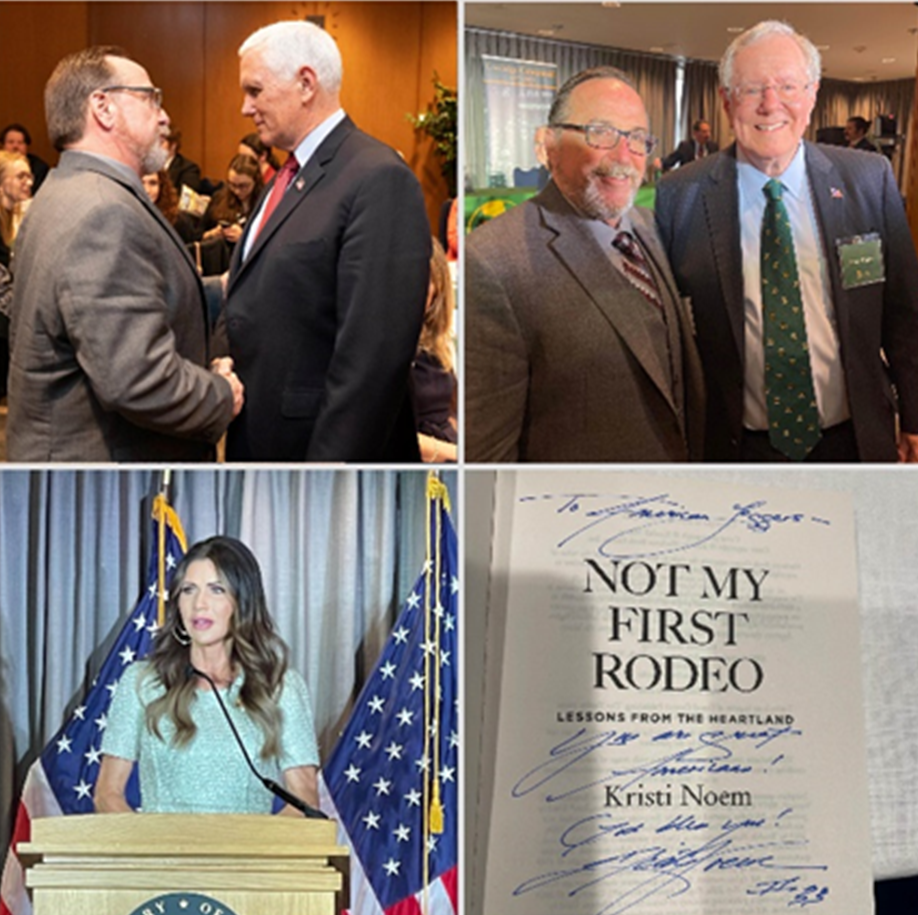The American Loggers Council, because of who we are (you) and what we represent, is widely recognized and respected. That is why the American Loggers Council was invited to attend the Coolidge Foundation centennial celebration of the Presidency of Calvin Coolidge.
Coincidentally, when Calvin Coolidge was Vice President he lived at the Willard Hotel, the same place that the American Loggers Council will be hosting the 2023 DC Fly-In and where the Council office is. The path of the American Loggers Council and the Calvin Coolidge Presidential Foundation were destined to intersect.
The conference, hosted at the Library of Congress, explored the political philosophy of economic prosperity (roaring 20s) through less government and lower tax rates.
“Of all the forms of government, those administered by bureaus are the least satisfactory.” -President Colidge
These policies were proven successful in lowering unemployment, reversing severe inflation, reducing the national debt, increasing tax revenue, and generating the last government budget surplus.
“The collection of any taxes which are not absolutely required, which do not beyond reasonable doubt contribute to the public welfare, is only a species of legalized larceny.” -President Coolidge
An unmatched portfolio of economic experts (Steve Forbes) conservative political leaders (Vice President Pence, South Dakota Governor Kristi Noem, New Hampshire Governor and White House Chief of Staff John Sununu, Indiana Governor Mitch Daniels, and Arkansas Congressman French Hill), many other notable dignitaries and historian’s framed the Coolidge years as being under-credited for the decade long impact of technological development (cars, electricity, modern plumbing, radio, movies) and economic prosperity.
The parallels between America 100 years ago and today are remarkable; the end of a pandemic; high inflation; deficit spending; war (WWI) debt; political division; and civil strife. But unlike 100 years ago, America today does not have political leadership that looks at history, learns from it, uses what proved successful, and put the greater good first.
It was said by Winston Churchill that those that fail to learn from history are doomed to repeat it. History may be a source of learning that can allow those that “learn from history” to benefit from the successes demonstrated by prior events and responses.
Oh, for our elected officials' days of principled public service leadership. We like to imagine that over the past 100 years, we’ve evolved into a greater republic led by more enlightened leaders. But the statesmen of yesteryear are mere historical figures, scarce in today’s halls of Congress or residence of the White House. The greatness of America was built by those before us. It is our responsibility to preserve it, not dismantle it.
The very essence of President Coolidge’s common man values is reflective of the values shared by the men and women of the American logging and timber occupation. The philosophy of hard work and self-reliance, which they epitomize, was reflected in President Coolidge’s quote, “Self-Governance means Self-Support.” This concept is absent in today’s teachings, which question, and cast doubt on the hard work and self-determination character of the men and women who work in the woods. President Coolidge’s reduction in governmental regulation, under which today has heaped such a burden upon the logger that they struggle to shoulder it and still provide for their family and business, would be welcome 100 years later.
President Coolidge served the U.S. and the American people selflessly, and when he came to the point that he felt he had done all he could for his country and countrymen as an instrument of Devine Providence “of which I am but one” he stepped aside. He knew to whom he was entrusted with honor and responsibility: “no pledge except to serve them.” Perhaps he knew that many “self-made men all too often fall prey to worshipping their maker.”
“It is a great advantage to a President, and a major source of safety to the country, for him to know that he is not a great man.” President Coolidge said upon his decision and announcement that he would not be seeking another term. However, he was widely assumed to have been elected.
A new generation of civic leaders will determine the future of the United States. Fortunately, 100 of the best and brightest college students, Coolidge Senators, were in attendance and participated in this reflection on how a reluctant public servant, President Calvin Coolidge, embraced the challenges of his time with the conviction and wherewithal to make complex, albeit not always popular, decisions based on moral convictions, with the good of all over the good of few, as his compass. Perhaps one of these Coolidge Senators will embrace the Coolidge philosophy and lead the United States back to a period of prosperity, peace, and progress.


